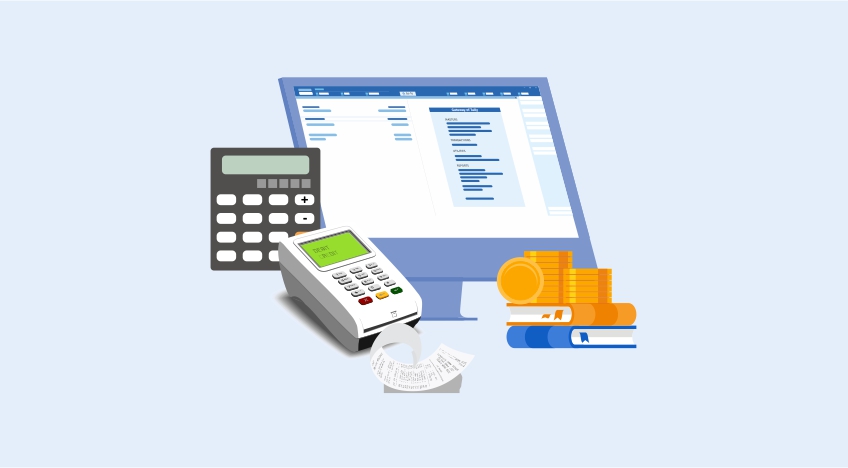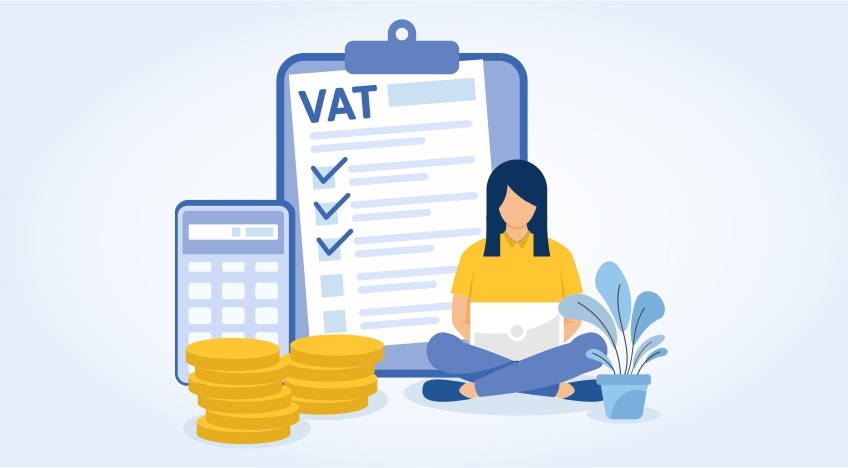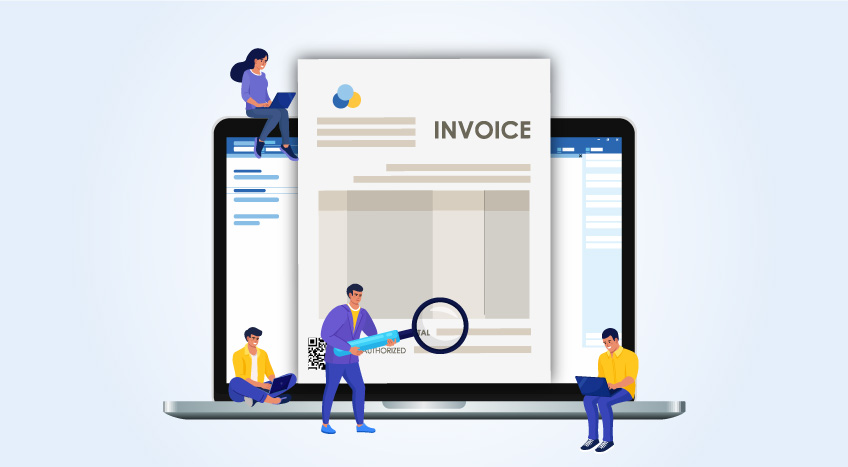- What is POS software?
- Features of a POS software
- What is billing software?
- Features of a billing software
- Why do you need integrated invoicing, billing POS software?
The sales environment needs speed and accuracy to process the customers' purchases at the point of sale (POS). Choosing the right POS billing system can speed up your billing and make inventory and accounting easier to manage. A POS system should also be able to work with a range of scanning hardware to have the flexibility that you need to integrate with existing equipment. POS and billing software that integrates with inventory and accounting creates an environment where these departments can work cohesively to improve performance.
| Multitasking Just Got Easier with TallyPrime |
What is POS software?
POS or Point of Sale is the counter where the customer at a retail store makes the payment for their purchases. It is a computerized cash register to process a sale and payments. The POS counter processes the selections of the customer and generates a bill. This bill is presented to the customer who makes the payment. A POS system is also used in businesses that provide a service or restaurants where the bill is brought to the customer. These may be very different scenarios, but they have the same POS functionality. The customer avails of selected products or services, and the business generates a bill. The POS software should also feature billing and invoicing capabilities for companies that do business with customers who may not always be physically present in the establishment.
Features of a POS software
- Simplicity: A simple intercase and steps to operate a POS system means quicker processing of the customers’ purchases. The POS module of software should always emphasize speed and simplicity. The POS system aims to process a sale as quickly as possible without creating growing queues of customers at the POS
- Flexibility: Payment is no longer restricted to cash and cards alone. Customers want the ability to pay digitally and may also request that the payment be split into two. A good POS system offers immense flexibility to ensure customer satisfaction
- Tracking: Some retail establishments like to track the performance of each of their sales personnel. Pick a POS software that allows individual logins for the person operating the POS station and allows you to record the salesperson’s name. This helps set and monitor sales goals and performance
- Inventory: The POS and inventory must be linked for real-time accuracy of inventory. So, when you scan an item as a sale, it will immediately reflect on inventory. This is essential for the complete synchronization and accuracy of inventory counts and reports. So, when an item’s stock gets low or at reorder level, it will be flagged immediately. There is no necessity for a periodic or end-of-day sync between inventory counts based on sales
- Queries: Sometimes, the person at billing or POS would need to query the system based on customer requests. A responsive POS system that allows queries is essential to satisfy this need
- Reporting: Decisions in every business should be data-driven. A POS system that lets you generate reports based on each POS, billing staff, salesperson, item, etc. gives you insights into trends and sales performance
What is billing software?
When a sale is made, the buyer is given a bill or invoice. In the retail scenario, a bill is presented and payment is immediate. The buyer takes possession of the goods after making the payment. A POS system is adequate for this scenario. However, in wholesale or manufacturing businesses, the sale process is driven by the agreements between the buyer and the seller. In most cases, the order is packed and shipped along with an invoice to the buyer. The buyer makes payment on receipt of the goods or as per the terms and conditions. An invoice has more details that a POS bill would have. Billing software helps the business generate invoices for sales.
Features of a billing software
- POS and billing capabilities: Some businesses need to have the capability to generate both POS bills and invoices. The same-store may make retail sales of items, and they may also take larger or bulk orders from customers who would need an invoice. Invoicing software would have to create an invoice that gives the billing address of the seller and the buyer. It will also have to mention the ship from, and ship to addresses as these may differ from the billing address
- Multiple formats: The format of the invoices must be as per the rules and regulations that apply to the POS system Uganda. They should also reflect the logo and other aesthetic aspects of its documents. Good billing software will allow you to customize the technical and visual elements of the invoices
- Digital invoices: Most businesses prefer to send and receive documents digitally. Choose a billing and invoicing software that can generate digital invoices for ease of doing business
- Rate slabs and discounts: A business may offer different rates and discounts based on the customer profile, items, or size of the order. Invoicing software that allows you to create different rate slabs makes managing invoicing more manageable and more accurate
- Inventory integration: Integration with inventory and accounting is essential so that all the records of the company are updated in real-time. This prevents stockouts and the generation of an invoice for non-existent stock. Integration also links invoicing with accounts receivable for accounting purposes.
- Multiple users: The invoicing and billing process would require user access at different levels. A billing and invoicing software that has secured accounts with access permissions based on user profiles is essential for security
- Tax and other levies: Choose accounting software that calculates and levies taxes and other charges in compliance with the local laws and regulations. This makes accounting easier and prevents the double work of recalculating and editing an invoice
Why do you need integrated invoicing, billing POS software?
An advanced and fully integrated software such as TallyPrime intelligently links all the different inventory, accounting, invoicing, billing, and POS processes. When you select TallyPrime you do not have to transfer data from one software to another manually. A sale of an item will automatically reflect on that item's inventory stock and update the appropriate accounting ledger for the sale amount.
Tally’s fully integrated POS system Uganda gives you complete control over all aspects of your business in one place. You can study the sales revenue and inventory stock-flow patterns through one software. Every report is generated in real-time and accurately. The intuitive interface and flow of screens simplify and speed up the sales process, making work easier for everyone using the system. The analytics feature of Tally helps management drill down on the different factors that affect the financials of the business. It also allows the administration to set sales goals and monitor how the sales personnel achieve them.
Integrated inventory and sales management helps all the company's different departments work together to drive the business forward. The software follows the service or product's life cycle from the purchase entry to the final sale to the customer. It ensures that all the relevant records and documents are updated automatically with no lag because of the lack of system integration. TallyPrime’s billing, invoicing and POS system Uganda is the foundation of better productivity, speed and accuracy in your company’s sales processes.
Read More:










